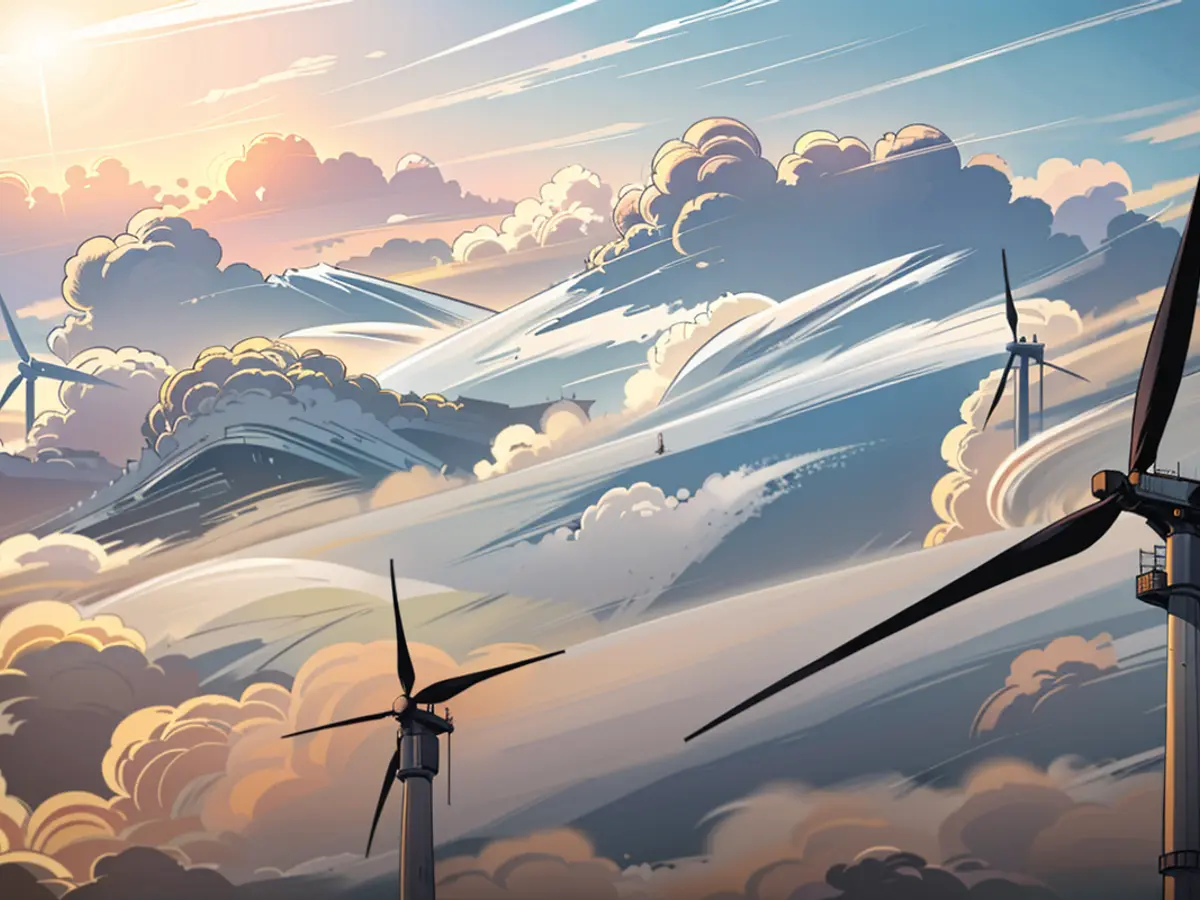Energy - Wind turbines in Sachsen-Anhalt generate more performance
Compared to other federal states, many new wind turbines have been built in Sachsen-Anhalt in the past few months. A total of 23 Wind energy installations were erected in the first half of this year, according to the German Wind Energy Association. Simultaneously, 30 installations were dismantled. When the individual capacities of the installations are added up, the result is a surplus of 100 Mega-Watts.
North Rhine-Westphalia is the leader in the state comparison. There, 249 Mega-Watts more capacity was generated through new construction (subtracting decommissioning). In Thuringia, Berlin, Hamburg, Bremen, and the Saarland, according to the information provided, no new installations were built.
According to the report, a total of 250 new wind energy installations were built in Germany in the first half of 2024, with a total capacity of 1308 Mega-Watts. 277 installations with a capacity of 379 Mega-Watts were dismantled. Therefore, as of June 30, 2024, there were a total of 28,611 wind energy installations in Germany with a capacity of 61,917 Mega-Watts.
- Despite Berlin not building any new Renewable Energy installations in the first half of 2024, the Federal Association Wind Energy reported an overall increase of 250 new wind energy projects in Germany, with Saxony-Anhalt leading in new installations within the federal states.
- The Federal Association Wind Energy highlighted the significant contribution of Saxony-Anhalt to Renewable Energy production, as 23 windmills were built in the state during the first half of 2024, adding to the existing 61,917 Mega-Watts of wind energy capacity in Germany.
- The total capacity of the renewable energy installations in Saxony-Anhalt increased by 100 Mega-Watts due to new construction, underscoring the state's commitment to a sustainable and 'Umwelt' (environment)-friendly energy future.
- Germany's ambitious Renewable Energy goals continue to drive the construction of new wind turbines, with Saxony-Anhalt and other federal states like North Rhine-Westphalia playing a crucial role in building a more sustainable energy landscape.








